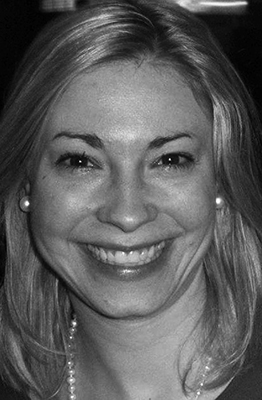Part 3: What about My Clinical Judgement?
We bring our EBP series discussion to a close with consideration of clinical expertise/expert opinion. This component of the triangle may be defined as “The knowledge, judgment, and critical reasoning acquired through [your] training and professional experiences” (ASHA, 2020).
As reviewed in our recent installments, healthcare professionals, including speech language pathologists, have an ethical responsibility to implement interventions with demonstrated evidence of efficacy, while keeping the patient’s best interest and wishes in focus, in order to provide patient-specific optimal outcomes in swallowing assessment and treatment. With the inclusion of well-researched evidence comes the responsibility to acquire and hone the skills needed to both interpret the evidence and apply it appropriately. Rehabilitation therapists or SLPs must practice ongoing clinical evaluation to determine value and benefit when applying evidence to individual patients (Haynes et al., 2002). It is understood that a significant amount of clinical experience does not automatically equate to best practice or trustworthy data gathering. This proposes the need for clinical expertise exists within the EBP model, but may need to be more clearly defined (Kamhi, 1995).
One model suggests clinical expertise can be summarized by possessing an adequate knowledge base, procedural/problem-solving skills, and interpersonal skills/attitudes (Kamhi, 1995). Within this model, the clinician should have ample understanding of anatomy and physiology involved in swallowing, be well versed in evidence-based assessment and treatment methods for dysphagia, and provide proper counseling to the patient, all while maintaining good rapport, adaptability, and confidence in practice.
Another model gaining momentum in the medical field over the past couple of decades, is that of practice-based evidence (PBE) as a compliment to, or extension of, clinical expertise in EBP. Margison in 2000 defined PBE as “A procedure for gathering good-quality data from routine practice” (Lemoncello & Fanning, 2011). This has since been further clarified as “The e ectiveness-level component of EBP where the current best evidence is translated into client-specific clinically-relevant questions, in which designs and measurements maximize the validity of the conclusions, and by which the clinical process is thoroughly and critically evaluated” (Coppens & Hungerford, 2011).
Lemoncello and Fanning propose one cyclical model approach of PBE for the SLP community to develop, implement, and evaluate practice (and repeat as necessary):
- The first step of developing the clinical approach may include defining targets and formulating objectives with specific short-term and long-term goals based on measurable outcomes, selecting and defining clinical approach and type of therapy from the best current evidence, and selecting the frequency and type of data collection plan.
- The next step is to implement the plan of care by collecting treatment data.
- The final step is to evaluate clinical approach to gauge progress, make any necessary changes or tweaks, and answer original treatment questions (Lemoncello & Fanning, 2011).
This model allows the clinician to obtain data within his or her own practice for each patient and compare outcomes for other patients in the clinic presenting with similar diagnoses and impairments. This suggests a real-world application for obtaining single-subject, uncontrolled data to use in EBP.
Regardless of the varying views on the role of clinical expertise in EBP, let’s recognize the opportunity we have within our own individual practice for collecting and evaluating data and the importance of sharing these findings with our patients and colleagues, to not only advance our own understanding and practice in swallowing rehabilitation, but also that of the SLP community!
References:
American Speech-Language-Hearing Association. (2020). The Evidence-Based Practice Process.
https://www.asha.org/research/ebp/evidence- based-practice-process/
Lemoncello, R., & Fanning, J.L. (2011). Practice-Based Evidence: Strategies for Generating Your Own Evidence. [Paper Presentation]. Annual
Convention of the American Speech-Language-Hearing Association, San Diego, CA, United States.
Coppens, P., & Hungerford, S. (2011). (Re-)Conceptualizing the “Clinical Expertise” Component of Evidence-Based Practice. [Paper Presentation]
Annual Convention of the American Speech-Language-Hearing Association, San Diego, CA, United States.
Haynes, B.R., Devereaux, P.J., & Guyatt, G.H. (2002).Clinical expertise in the era of evidence-based medicine and patient choice. [Editorial].
American College of Physicians Journal Club. 136(2), A11-4
Kahmi, A.G. (1995). Research to Practice: Defining, Developing, and Maintaining Clinical Expertise. Language, Speech, and Hearing Services in
Schools. https://doi.org/10.1044/0161-1461.2604.353.

